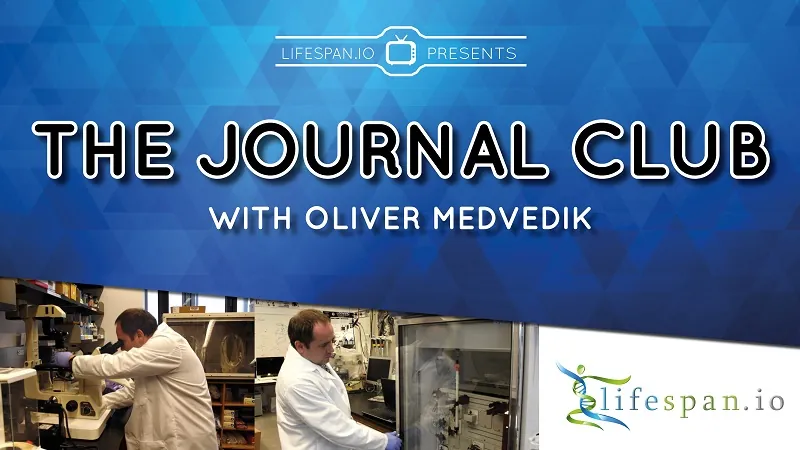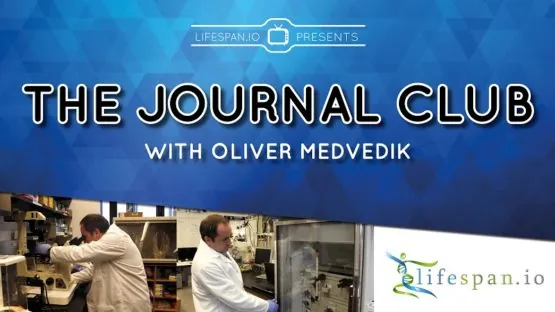Dr. Oliver Medvedik returns to the Journal Club on May 21st, 1:00 PM EDT, live on our Facebook Page and is going to be taking a look at a new study in which researchers claim that they have halved the epigenetic age of old rats using blood factors present in young rats.
The paper was published as a preprint on
bioRxiv, a site where authors are able to make their research immediately available to the scientific community and receive feedback from their colleagues before they are submitted to journals for peer review and publication. It should be noted that preprints have not undergone the rigorous scientific review process, so the data presented in the paper should be viewed with that caveat.
Dr. Harold Katcher and his team report that they gave Elixir, an undisclosed mixture of plasma fractions presumably isolated from young rat plasma, to aged rats. They state that their technique is based on heterochronic parabiosis but forgoes the need to physically join an old and young animal together so that they share circulatory systems. The researchers claim the following in their paper:
Crucially, plasma treatment of the old rats reduced the epigenetic ages of blood, liver and heart by a very large and significant margin, to levels that are comparable with the young rats. According to the six epigenetic clocks, the plasma fraction treatment rejuvenated liver by 73.4%, blood by 52%, heart by 52%, and hypothalamus by 11%. The rejuvenation effects are even more pronounced if we use the final versions of our epigenetic clocks: liver 75%, blood 66%, heart 57%, hypothalamus 19%. According to the final version of the epigenetic clocks, the average rejuvenation across four tissues was 54.2%.
This is an impressive result if it is correct and could potentially confirm that certain factors in blood can reverse the epigenetic age of cells, making them function like young cells. It may also support the hypothesis that epigenetic alterations are not only the hands of the aging clock but also that they are, at least in part, the workings of that clock too.
We have also covered this study on our regular news outlet if you would like to get a bit more background.

Steve serves on the LEAF Board of Directors and is the Editor in Chief, coordinating the daily news articles and social media content of the organization. He is an active journalist in the aging research and biotechnology field and has to date written over 600 articles on the topic, interviewed over 100 of the leading researchers in the field, hosted livestream events focused on aging, as well as attending various medical industry conferences.
His work has been featured in H+ magazine, Psychology Today, Singularity Weblog, Standpoint Magazine, Swiss Monthly, Keep me Prime, and New Economy Magazine.
Steve is one of three recipients of the 2020 H+ Innovator Award and shares this honour with Mirko Ranieri – Google AR and Dinorah Delfin – Immortalists Magazine. The H+ Innovator Award looks into our community and acknowledges ideas and projects that encourage social change, achieve scientific accomplishments, technological advances, philosophical and intellectual visions, author unique narratives, build fascinating artistic ventures, and develop products that bridge gaps and help us to achieve transhumanist goals.
Steve has a background in project management and administration which has helped him to build a united team for effective fundraising and content creation, while his additional knowledge of biology and statistical data analysis allows him to carefully assess and coordinate the scientific groups involved in the project.


